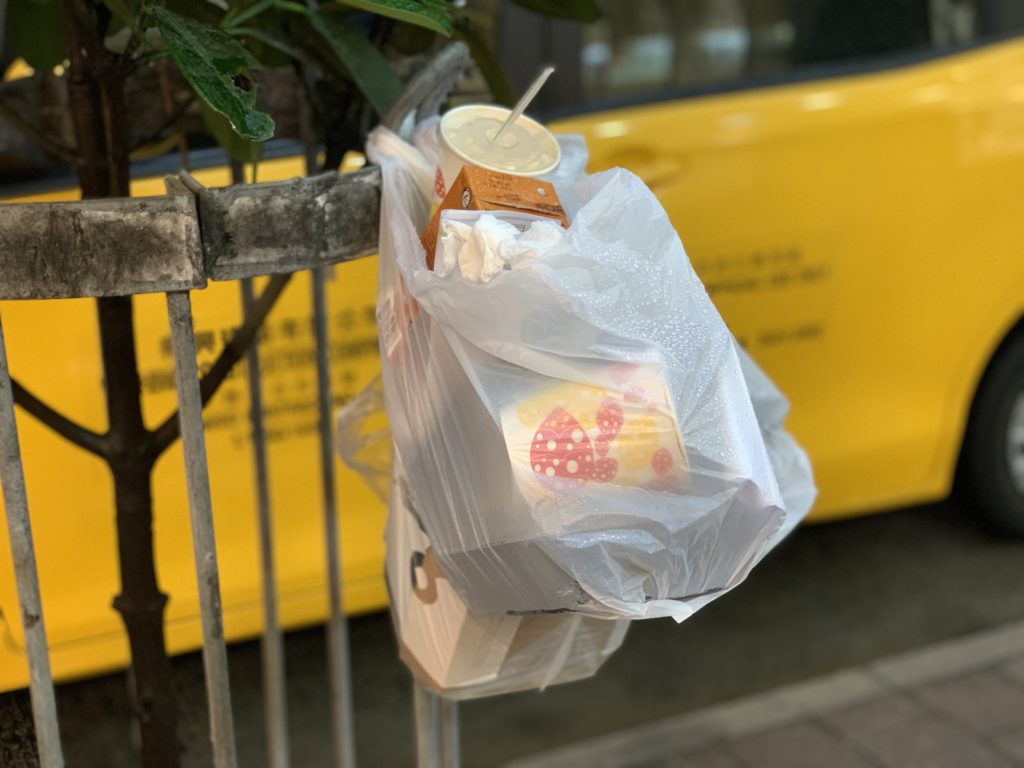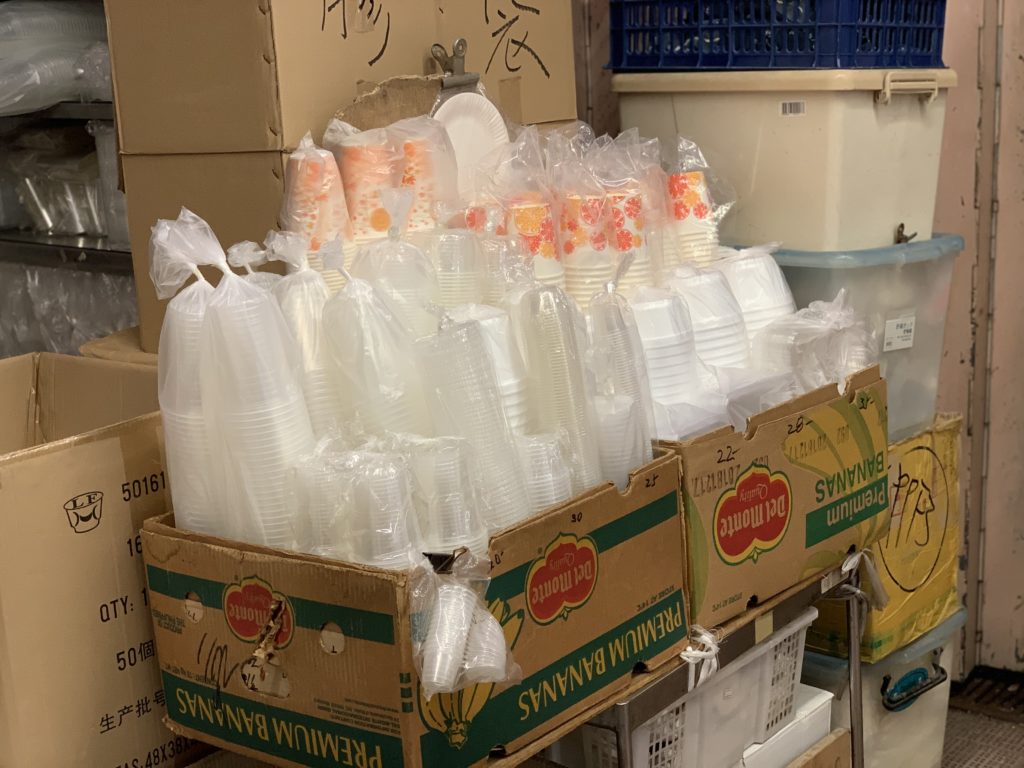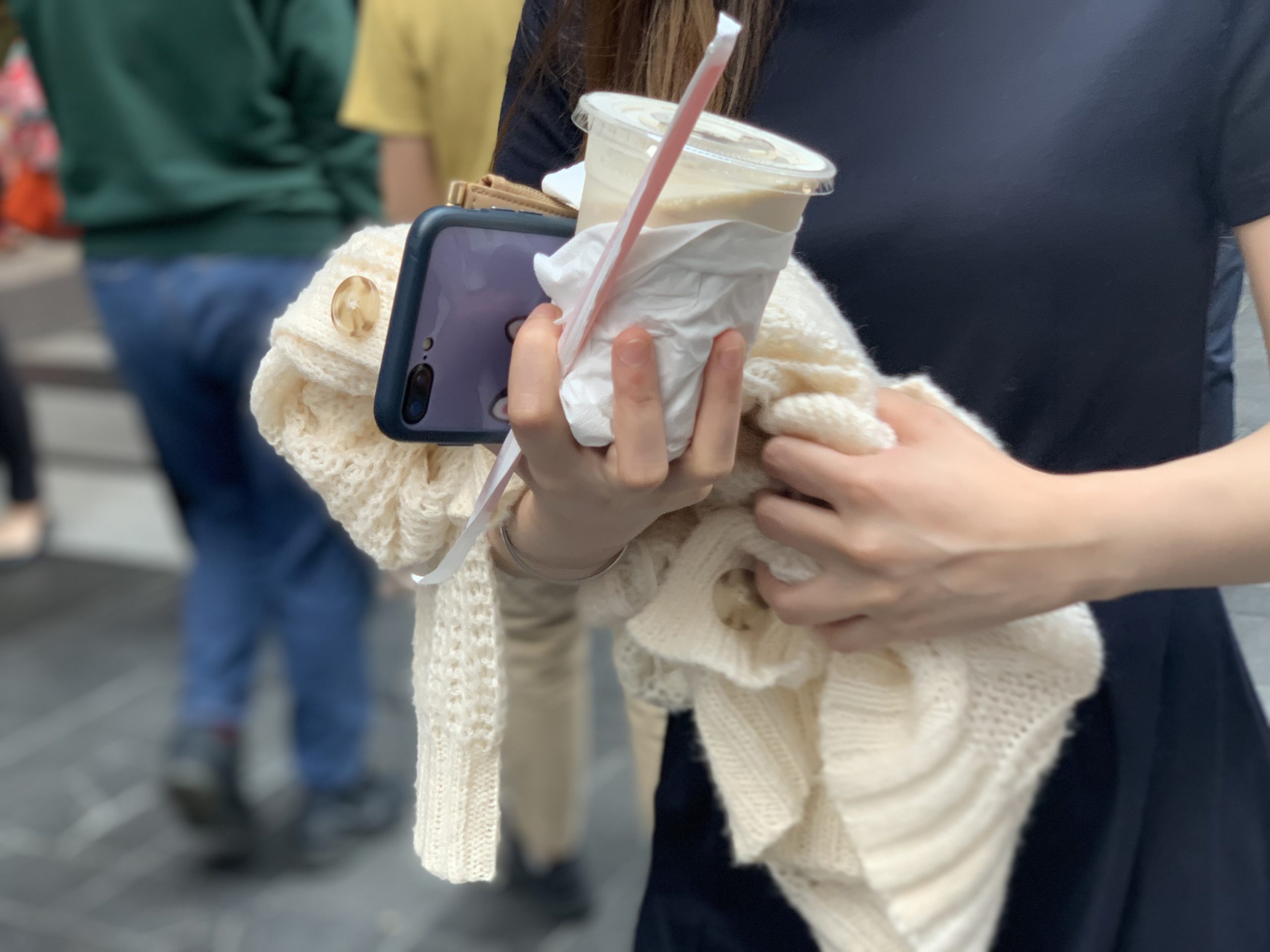3 Mins Read
Hong Kong is drowning in waste. Research indicates that a 2019 surge in takeout consumption has resulted in unsustainable amounts of packaging materials being sent to landfills. Contributing to street and beach litter as well, the issue now requires urgent remediation.
A report released by ADM Capital Foundation estimates that 3.9 billion single-use takeout items were thrown away in Hong Kong, in 2019. This was before the Covid-19 pandemic drastically altered takeout habits in the country and increased how much was consumed. Driven by convenience and overpopulation, takeout food is popular as a fast solution to nutrition. Now, the consequences of single-use packaging are impossible to ignore.

A growing concern
As Covid-19 picked up the pace, so too did convenience eating in Hong Kong, claims the report. A direct result of increased sanctions on restaurants and shops, the delivery market surged by up to 50 percent. The report goes on to propose that this trend will continue, as it has become a lasting habit for many citizens.
Aside from identifying the causes of packaging waste, the report identifies a need for multifaceted solutions. It suggests starting with conversations that span further than just plastic takeout containers. “Addressing just one type of single-use food packaging, such as plastic, would inevitably cause a shift to other SFPs and would not contribute to Hong Kong’s landfill diversion or litter reduction goals,” said Helga Vanthournout, author of the report.
Practical solutions
Four options for dealing with single-use foodservice packaging (SFP) were considered. The potential solutions were: recycling; Bring-Your-Own (BYO); composting and loaned reuse items. Using cost, ease of widespread application, and environmental impact as comparison metrics, two stood out as the most viable; recycling and BYO. Both demonstrated the potential to keep waste out of landfills while requiring minimal water use and keeping carbon emissions low. Compostable packaging fared negatively. “Contrary to popular belief, plant-based and compostable packaging will still end up in Hong Kong’s landfills,” Ashley Bang of ADM Capital Foundation, said in the report. “Our market currently lacks the industrial infrastructure to compost this type of packaging, so F&B operators and consumers should be aware of the actual impact of what they perceive as more sustainable options.”
The report makes it clear that a collaborative approach to waste solutions will be essential. It pinpoints the hospitality trade as being in a prime position to lead efforts, rather than waiting for heavy-handed government legislation to force systemic change. “F&B operators can nudge consumers towards better takeout options, accommodate reusable containers, and inform themselves about the impact of single-use packaging options,” said Vanthournout.

A greener future
Vanthournout writes that government action, though not necessary to kickstart initiatives, will be essential for lasting change. “We should not wait for a hard-hitting piece of legislation that will take time to build consensus around,” said Vanthournout. “The work to keep takeout packaging waste out of landfills must and can start today.” No environmental action plan is considered big enough to compete with billions of pieces of SFP. Businesses and domestic residences need to be shown the value of moving away from disposable packaging, says the report.
There are apps and platforms already working to make waste reduction an easy endeavour. Jybe was launched in 2020 and offers users the opportunity to choose a food supplier based on their product containers. Now covering 400 Los Angeles locations, it is expanding to include Portland, the San Franciso Bay area, Seattle, Denver, and Boulder.
Closer to home in Hong Kong, SourceGreenPackaging is approaching the B2B market and aiming to facilitate waste change on the ‘shop floor’. The platform enables easy sourcing of certified eco-friendly, food-safe packaging and service ware.
All images courtesy of Helga Vanthournout.





